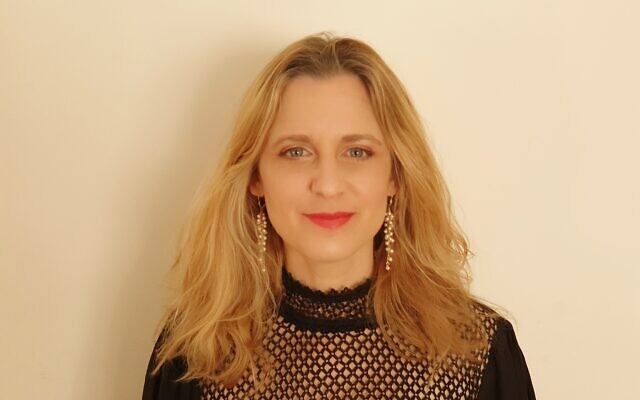Israeli scientist’s cancer breakthrough
Noa Lamm and her team have made a key finding that explains chemotherapy resistance in patients undergoing treatment.
NOA Lamm was nine when her mother, 32, was diagnosed with breast cancer. She described the next eight years, which would see her mother eventually succumb to the disease, as a “terrible ordeal”.
“At the beginning I was feeling that maybe because I love her so much nothing will happen to her,” she said.
“It was really hard to see someone that you love so much, your whole world … basically there was nothing I could do to change it.
“It really affected my choices. I felt I need to gain [for] myself some sense of control and I want to do what I can to improve therapy for cancer patients.”
Expanding on PhD research she undertook at the Hebrew University of Jerusalem and now working at the Children’s Medical Research Institute in Westmead, Sydney, Dr Lamm and her team have made a key finding that could improve outcomes for patients undergoing cancer treatment.
When cancer cells encounter problems replicating their DNA, actin cables form inside the nucleus, increasing the ability of the cell to repair its DNA and restart the replication process.
Treatments that disable the actin cable mechanism could kill cancers that already have difficulty maintaining a high rate of DNA replication, while adding treatment that interferes with the actin cables to chemotherapies could enhance their success rate.
“The mechanism we found basically lets us understand how some cancer cells resist chemotherapy,” she said.
“[If] we add another drug which inhibits the pathway that we found, it means that cancer cells will not be able to become resistant.”
She is hopeful that in the next two to three years her team will be able to find ways to apply their discovery.
“I’m still cautious, there is a way to go between basic research and discoveries to a way to harness them,” she said.
Dr Lamm, who is married with two children, came to Australia with her family for the work-life balance and after her husband, who visited after his army service, described it as “the most beautiful place in the world”.
“I’ve heard that the Jewish community is amazing and very supportive, and we are here and we like Australia,” she said.
When she’s not researching or spending time with her family, she also writes novels. Her first book was published in Israel three years ago and she’s almost finished her second.
“In a way, doing science and writing novels is a bit similar in terms that it’s creative and it’s an attempt to understand the world,” she said.


comments